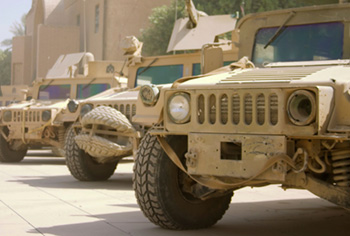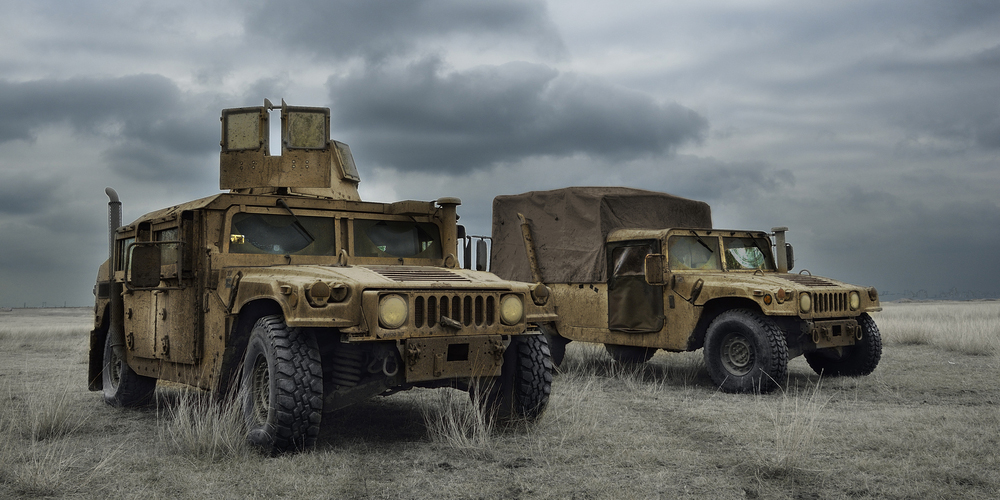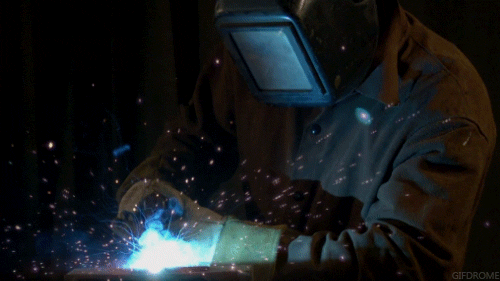ARMORPLATE
Material Data Sheet
Armor plate steel is used around the world by the military, defense, and security industries to provide increased levels of protection against the harsh environments and conditions they encounter. Specifically, in the military, armor plate steel provides high levels of protection against blast and ballistics due to its high hardness and strength.
Alloys International, Inc. stocks a wide variety of specialized armor plate for both the military and civilian markets.
Armor & ballistic steel plate can be utilized in the manufacture of military vehicles (such as tanks and armored personnel carriers), structural housings with augmented protection, armaments, and many additional protective structures for combat and defense application.
It is also used for clad-protecting civilian vehicles to strengthen door panels and other vulnerable components in cash transit, police, and para-military transportation, as well as vehicles used by diplomats, aid agencies, and medical teams operating in some of the world’s most dangerous environments.
Alloys International supplies a comprehensive array of ballistically tested armor steels ranging from 380 to 500 Brinell in hardness, and in thicknesses from .125″ through 12.00” (grade dependent). Widths of up to 10 ft. wide and lengths up to 40 ft. can be realized.
OUR STEEL GRADES

MIL-A 46177 STEEL PLATE

MIL–A 46177 steel plate is a military spec armor steel plate that is heat treated and used for its ballistic protection properties over many armored applications. From up-armoring kits to a wide variety of other applications, our ballistic steels are designed to meet a client’s needs. Mil-A-46177 is a wrought homogenous armor plate that is typically used in light gauge applications. It comes in thicknesses from .125”-.250”. and it is designed to withstand Mil-Std-662 V 50 Ballistic Test for Armor.
For shock absorption purpose, it is designed to be made (rolled) as homogenous as possible with a minimum Rockwell (HRC) of 39 or Brinell (BHN) of 362. An average out of flat tolerance of ¾” is the maximum allowable but better flatness can be achieved.
This grade is less often requested now but is still used for some liner and/or smaller vehicle applications. The steel armor covered by this specification is specifically military in nature and is intended for use on combat vehicles, where resistance to armor-piercing ammunition and multiple hit capability are required.
MIL-A 12560 STEEL PLATE
MIL–A 12560 steel plate is a military-spec armor steel plate that is approved by the Material Technology Laboratory, Department of the Army, for use in combat vehicles and for ammunition testing. Thickness ranges from 3/16” through 3” are for use in combat vehicles and ¼” through 12” are for use in proof acceptance testing of armor defeating ammunition.
Typically this grade of armor is used in the protection of landmines or explosive structures. It absorbs shock very well and therefore helps to keep shrapnel to a minimum. Each plate is tested to a Fragment Simulated Projectile standard, which dictates the level of protection for which the plate will ultimately be used.

| Element | Content (%) |
|---|---|
| Iron, Fe | 97.8 |
| Nickel, Ni | 0.50 |
| Silicon, Si | 0.40 |
| Chromium, Cr | 0.40 |
| Manganese, Mn | 0.30 |
| Carbon, C | 0.30 |
| Vanadium, V | 0.15 |
| Molybdenum, Mo | 0.15 |
| Phosphorous, P | 0.025 |
| Sulfur, S | 0.015 |
MIL-A 46100 STEEL PLATE

MIL–A 46100 steel plate is military spec armor steel. It exhibits high-hardness that is approved for use within the Department of the Army and is available for use by all Departments and Agencies of the Department of Defense. Applications vary, but typically armor 41600 steel plate is used to stop high-velocity projectiles (HVPs). This particular grade military-spec armor steel plate is especially useful to protect structures or vehicles from sniper fire or any form of HVP weapon. Depending on the threat level, various thicknesses of steel may be employed. The threat level is determined by three factors – the size of the round that the product is meant to defend, the speed at which that round is traveling, and the distance the round will travel before reaching the target.
| Element | Content (%) |
|---|---|
| Iron, Fe | 96.5 |
| Chromium, Cr | 1.6 |
| Nickel, Ni | 1.55 |
| Manganese, Mn | 1.0 |
| Silicon, Si | 0.60 |
| Carbon, C | 0.32 |
| Molybdenum, Mo | 0.30 |
| Phosphorous, P | 0.02 |
ALUMINUM ARMOR PLATE
The basic requirements for aluminum alloy armor plate are:
- Resistance to projectiles
- Good corrosion resistance
- Good weldability (in some cases)

Ballistic tests are often conducted with 0.30 caliber armor-piercing projectiles and with fragment-simulating projectiles such as the common 20 millimeter projectile.
Traditionally, the search for better combat vehicle armor has emphasized stronger and tougher materials to resist more durable projectiles moving at higher velocities. Conventional approaches have led to progressively thicker armor, harder armor, and, inevitably, to heavier armor, and a corresponding sacrifice in vehicle mobility.
The aluminum armor alloys which have become most widely accepted are 5083, meeting the requirements of U.S. Military Specification MIL-A46027F (MR), and 7039 meeting the requirements of U.S. Military Specification MIL-A46063E.
Armor plate of alloy 7039 is considerably superior to armor plate of alloy 5083 for AP ballistic performance, but less so in FS ballistic performance. In fact, below 1.235 inch gauge, 7039 armor plate is rated below 5083 armor plate in FS ballistic performance according to the military specifications. In any case, the generally favorable ballistic performance of 7039 armor plate is seriously offset by the fact that it is more susceptible to stress corrosion than 5083 armor plate, especially when welded into an armored structure. It is also less readily weldable and more dense than 5083 armor plate. For this reason, Alloys International carries 5083 as standard inventory and will special order alloy 7039 upon request.



